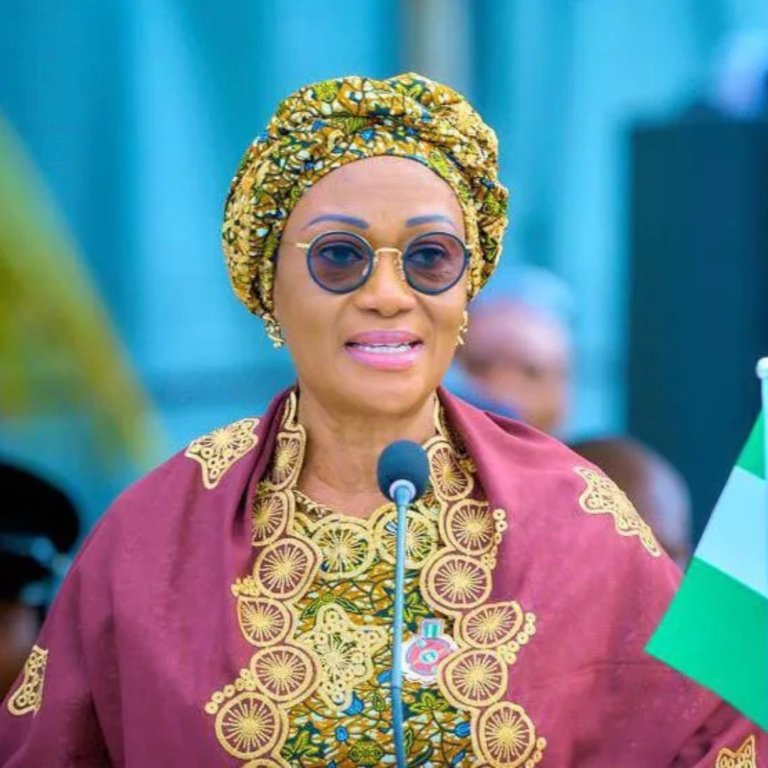One thing about Nigerians: we will “God abeg” our way out of the craziest situations. But thanks to Nigerian policymakers, even the loudest of God abeg’s proved impotent in 2024.
I don’t have plans to trigger any PTSD, but what’s a 2024 recap without a compilation of the worst policies that hit Nigeria within the year?
From “God abeg” to “Affliction shall not arise again”, here are 2024’s most interesting policies.
New National Anthem Bill
In May 2024, Nigerian lawmakers signed the National Anthem Bill, pushing for a return to the old anthem ( written by a British man), “Nigeria, We Hail Thee.”
Even though we’ve learned to live with it, the decision didn’t sit right with many Nigerians, especially given how quickly it was passed when the country had more pressing issues to address. Despite public criticism, this bill wasn’t withdrawn, and Nigerian lawmakers didn’t act like they gave two shits about public opinion.
We’ve gone through all five stages of grief as a country. Some of us have arrived at acceptance while others are somehow stuck in the sixth stage of national grief – the no be Tinubu go tell me wetin I go do stage.
6-year presidency bill
In June 2024, a group of 35 lawmakers proposed a bill that would have extended the maximum number of presidential and gubernatorial leadership from four years to six years for a single term. The proposal attempted to amend Sections 7, 135, 137, 180 and 182 (1) of the 1999 Constitution. The lawmakers involved claimed the bill would cut governance costs and lead to a more stable political climate. But Nigerians haven’t had enough luck with good leaders to buy into that dream.
The lawmakers behind the bill have lowkey ghosted, and we haven’t heard about it for a while.
VAPP repeal bill
In August, the worst fear of many Nigerian women happened. Senator Jibrin Isah, a MAN in governance, started pushing to repeal the Violence Against Persons Prohibition (VAPP) Act. If this is your first time hearing about this act, the first thing you need to know is that it offers protection against gender-based violence (GBV) for men and women and helps keep all genders safe, empowered, and educated throughout Nigeria. You should also know that Nigeria didn’t have a national law on violence against women before the VAPP Act.
In 2002, over 55 groups formed the Legislative Advocacy Coalition Against Violence Against Women (LACVAW) to advocate for women’s protection. Their efforts led to the VAPP Act, which was passed and signed into law in 2015.
Senator Jibrin’s main argument in calling for the repeal is that the act is not comprehensive and has unclear parts that make it hard to enforce properly. He argues that the law needs to be updated to reflect today’s issues. After being met with criticism from women’s rights groups and Nigerian women, the bill’s future started looking shaky. It’s hard to figure out whether Senator Jibrin is still standing on business, but we won’t be surprised if he pops up again in 2025 with the same energy.
Road Safety Special Armed Squad Bill
In October, a bill proposing that Federal Road Safety Commission (FRSC) officers should be allowed to carry guns to perform their duties passed its second reading, with the majority of the lawmakers in the House of Representatives supporting it.
Speaker of the House Abbas Tajudeen, who also inaugurated the constitution review committee, even called it a “straightforward bill” before sending it to the FRSC committee for further review and action.
This was a questionable move because some FRSC officers have a history of demanding bribes from drivers and assaulting them when they resist.
Young Nigerians were at the receiving end of Police brutality under SARS and still suffer Police brutality even after SARS was scrapped; if patterns are anything to go by, they are at the greatest risk of being profiled and assaulted by power-drunk officers of the FRSC once they get their guns. To make sure this doesn’t happen, tons of them took to social media to speak out against this bill when the news hit the street, arguing that officers of the FRSC don’t need guns to perform their duties. Still, lawmakers have been really quiet about this kickback from young Nigerians, and like many other things in Nigeria, the future of the bill is still uncertain.
Bill seeking to expand Sharia law
On October 24, Aliyu Misau, a Nigerian lawmaker, proposed a bill that would have given the Sharia Law more power in the Nigerian constitution. Many Northern lawmakers were on board with the idea despite the fact that Nigeria is a multi-religious country. After some spirited back-and-forth, Deputy Speaker Benjamin Kalu put the bill to a voice vote, and a majority of lawmakers voted against it. But to some Nigerians, the fact that it was even raised was enough reason to be concerned.
VAT increase bill
October was definitely the month of unpleasant surprises because that was the same month that the National Assembly started considering a bill that would increase the Value Added Tax (VAT) paid by Nigerians from 7.5% to 10%.
If you think 10% doesn’t sound that bad, you’d hate to know that the 10% increase is the first of three VAT increases these lawmakers are discussing. The bill proposes that the 10% will take effect in 2025, while another 12. 5% increase will take effect in 2026 and last until 2029. This VAT hike (if it happens) will be charged on every taxable item, so you might have to throw your “I’ll buy it in 2025” plans into the trash now. We can still hope for a Christmas miracle because your favourite lawmakers are putting the bill on pause till 2025 to enjoy their oblee plans.
Telecom tax bill
The people around President Tinubu must have forgotten to remind him that he once publicly advocated for poor people’s right to breeffff because we saw the worst of billing in October.
A bill, which has a weird long name (“A Bill for an Act to Repeal Certain Acts on Taxation and Consolidate the Legal Frameworks relating to Taxation and Enact the Nigeria Tax Act to Provide for Taxation of Income, Transactions, and Instruments, and Related Matters,”), hit the National assembly. The bill proposed a 5% increase in the cost of telecom services that over 215 million Nigerians use every day.
This bill didn’t just target telecom services; it was also designed to introduce gaming, gambling, lotteries, and betting taxes. It hasn’t been passed yet but don’t be surprised to see it in the news again after Detty December.
Nigerian lawmakers had us screaming “blood of Jesus” every three market days with these questionable policies. Given that we still don’t know what happened to some of these bills, we’re not sure that the craziness will not extend into 2025.





